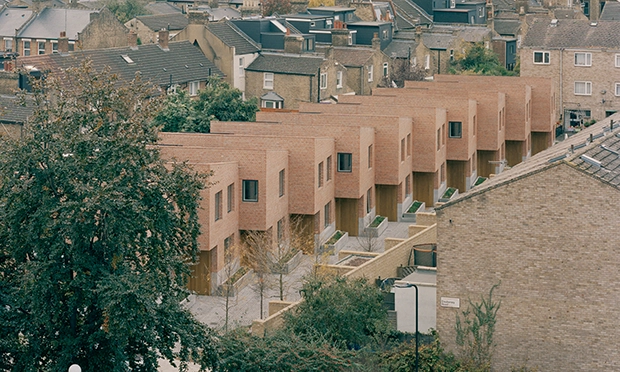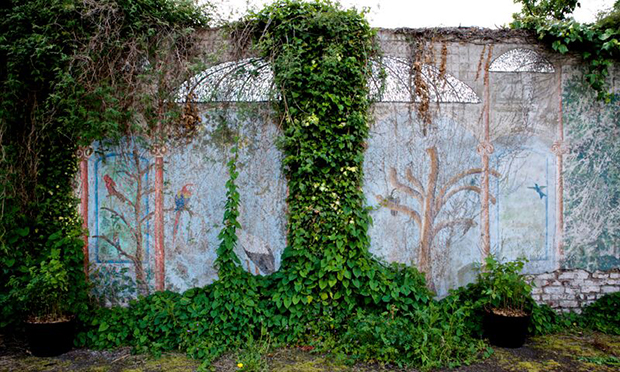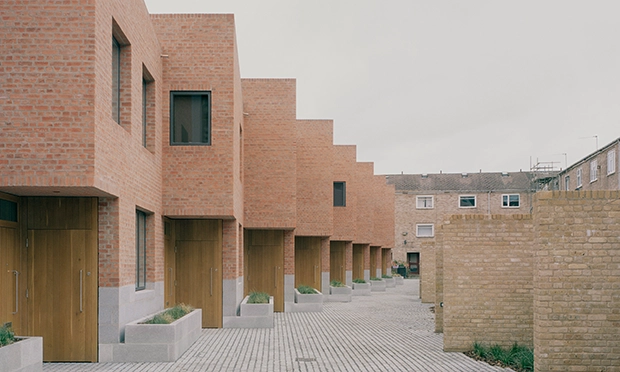Council block built on former community garden in Clapton wins architecture prize

Chowdhury Walk. Photograph: Rory Gardiner
A council development on a Clapton site that residents tried but failed to keep as a community garden has won an architectural accolade.
Chowdhury Walk was picked out by the Royal Institute of British Architects (RIBA) as part of its prestigious annual awards.
The eleven-home block just off Daubeney Road was praised by judges for its “elegant” design and environmentally-minded construction.
A 44-year-old wall mural made by children is still on display – a reminder of the land’s community-focused past.

The mural, pictured before construction started, dates back to 1980. Photograph: DFF
The mural was the last hope of campaigners who had turned the disused car park into a thriving garden, but a heritage assessment did not stop the development from going ahead.
Chowdhury Walk is a mix of social rent and shared ownership homes that RIBA experts said are “successfully knit into their context – satisfying both resident and passer-by”.
The design was put together by local architecture practice Al-Jawad Pike, which was chosen by Hackney Council as part of its project to transform underused land into housing.
The site’s eco-friendly credentials are a highlight, with judges saying: “The development has engaged with the issues of climate challenge in a positive way, clearly acknowledging all the requirements for both operational and embodied carbon.
“The homes are constructed in cross laminated timber (CLT), which is exposed internally in places. Windows are triple-glazed, and the houses have photovoltaics on their mono-pitched roofs.
“The scheme was well developed before 2019 when the RIBA 2030 Climate Challenge was issued, and utilises gas alongside on-site renewables for the energy strategy.
“As a result of a good fabric efficiency, residents have benefited from a significant improvement in actual versus predicted energy use.”

A closer look at the new homes. Photograph: Rory Gardiner
The RIBA Climate Challenge encourages architects to play a part in the UK’s efforts to reach net zero carbon emissions.
Fish Island Village in Hackney Wick was also recognised at the awards.
RIBA’s regional director of London, Dian Small, said: “There’s so much to love about this year’s RIBA London winners.
“With a huge range of styles, sectors and scales covered, they reflect the rich quality of world-class architecture being delivered in this city.
“It was great to see that inclusion and accessibility were key considerations across all projects, allowing everyone to experience the delights of architecture.”
London winners will now be considered for a highly coveted RIBA National Award, which will be announced on 11 July.
The shortlist for the famous RIBA Stirling Prize for best building of the year will be drawn from the RIBA National Award-winning projects later in the year.
